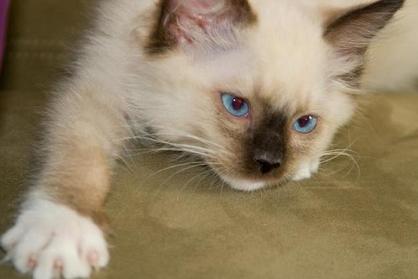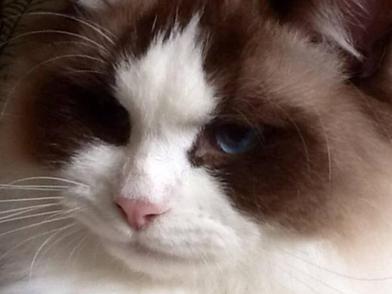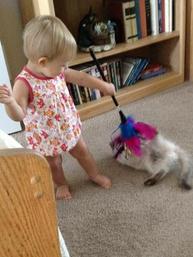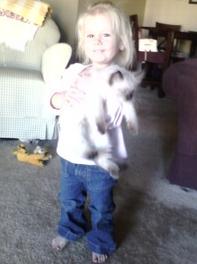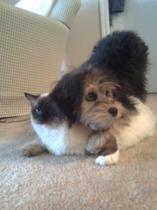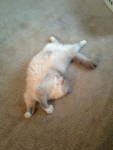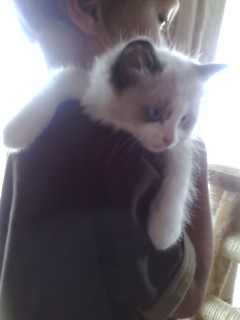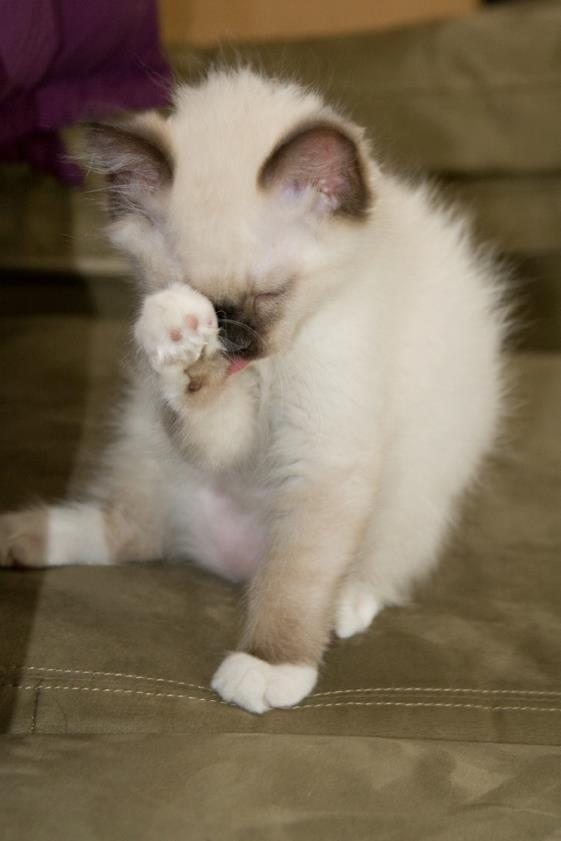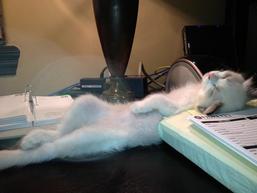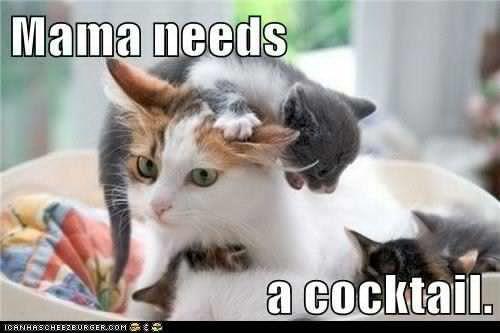About the Temple Dolls Ragdoll Cattery
About the owner:
Janet is a mother of three amazing sons. She is a Licensed Clinical Social Worker in Colorado, and a Licensed Independent Clinical Social Worker for the state of Massachusettes (specializing in hospice, grief, trauma, diagnosis and treatment of mental illness, internal medicine/complex care management, and conflict resolution). She is an E-RYT yoga teacher registered through the yoga alliance (certified through the International Yoga College.); and a trained birth doula. She holds an Associate of Liberal Arts degree from Arapahoe Community College; a Bachelor's degree in Psychology with a minor in Human Services from Metropolitan State University of Denver; and a Master of Clinical Social Work Degree from the University of Denver, with a certificate in Interpersonal Trauma Studies. She is an activist in the areas of bee/pollinator protection, environment/wildlife protection and conservation, civil rights, and animal rights. Her service aims to promote the mental and spiritual health and well-Being of the animals, individuals, and families she is so blessed to serve.
Janet has been in the ragdoll fancy for over 28 years. She has been raising litters off and on for at least 31 years. It started in adolescence raising feral litters and placing rescues. She has also spent many hours volunteering for the ASPCA and was first published at the age of 14 (a cover story describing the life of shelter animals) through the Animal Protection Institute. Her ethical breeding program is very important to her. TempleDolls has been a dream of hers since the age of 16. She built TempleDolls from the ground up, starting in her 2 bedroom apartment.
I have three very specific reasons for breeding Ragdoll cats:
The most important reason is to build character in my children by teaching them about the natural world. My three young sons are involved in every step of this process. Not only do they learn how to handle, love, and care for living beings who depend on them for this care; but they learn about healthy attachment, change, and "letting go" when it is time for the kittens to be placed with their forever families.
The second reason is to bring joy to the lives of others. I advocate for the therapeutic role that animals play in the lives of their humans -- through all stages of development. This means that I support the scientific research on the therapeutic effect that domestic pets have on people through all stages of life... for people young and old... and everything in between. I firmly believe that the unique characteristic qualities of the Ragdoll provide an increased level of therapeutic value in the household: they are a beauty for the eye to behold; their "flop" factor makes them accessible to children and adults alike; they are vocal and enjoy communicating with their humans; they live happily in apartments and houses alike; and, the well-socialized Ragdoll cat will seek (demand?) the company and affection of its humans. All of these qualities are a fantastic recipe to support the therapeutic human-animal connection.
Third, I breed Ragdolls to support my personal philosophy that a key component to a life well-lived means making what you love work for you. This is an important life-lesson that I need to teach my children through example. My deep love of animals inspired a lifelong desire to work with them. So engaging in this labor of love allows me to experience joy in my work.
How my boys are involved in raising the kittens:
This is a family affair. My boys learn this practice with daily involvement in the care of our furbabies.
All three of the boys spend a lot of personal time playing with and handling our pets. They love being involved in socializing our kittens.
Cattery size:
Templedolls is a small hobby cattery, focused on quality, not quantity. We do plan for future growth, but never produce more kittens than can be adequately raised and socialized under-foot
Another benefit to the small size of Templedolls is that we are able to get to know each kitten's unique personality and temperament. This is ideal in matching our kittens to the unique family and living situation of each client.
The Space:
We have a large custom cattery space. There is a wall that divides the "main cattery space" and the "studio apartment." Both areas have a large window which lets in fresh air and natural light. We have installed commercial grade flooring for ease of sanitation. There is also a commercial grade exhaust fan as well as special lighting installed for vitamin D absorption . Both areas are equipped with cat trees, toys, scratch posts, and other furniture. We also have counter space, supply cabinets, and a sink with a garbage disposal. Both areas also have central heating and air conditioning. Both areas provide a warm/safe space for our dolls; while at the same time it is connected to all the household commotion.
The new cattery space is also decorated with fun cat art. See "The Cattery Space" page for photos of our custom facility.
Nutritional Support:
Templedolls Ragdolls are fed high quality cat/kitten food daily.
Sanitation:
Templedolls is a closed cattery. We use clinic-grade cleaners for ongoing sanitation.
Litter box scoops and their holding containers are routinely cleaned and sanitized with germicidal cleanser. These items are also replaced quarterly.
The cattery floor is swept daily. We use a clinic grade floor cleaner as well as a sanitizing steam mop.
All linens are only used once and then discarded.
The cat trees are routinely vacuumed and treated with an oxy cleaner until they must be replaced.
Plastic toys are routinely cleaned and sanitized with germicidal cleaner. Absorbent toys are thrown away once soiled.
We use only ceramic or porcelain dishes for food and water. Food and water bowls are rinsed every morning. Fresh water is provided daily.
We have pumps of antimicrobial soap at the cattery sink, the kitchen sink, and the guest bathroom sink. There are one-time use paper towel dispensers both in the main cattery space as well as above the cattery sink in the studio apartment. We also have a latex/vinyl glove dispenser in the cattery.
Shoes are not allowed in the cattery space. Disposable shoe covers are also used daily.
Veterinary support:
We work closely with our veterinarian.
Our adult cats are provided with all veterinary support as indicated, including tests, imaging, and any needed emergency care, surgery, or hospitalization.
Kittens make their first clinic appearance around 8-10 weeks old (unless otherwise indicated). They are given a well-check, de-worming, and their first round of distemper vaccine before they come home. These records go home with your kitten.
ALL BREEDING TEMPLEDOLLS RAGDOLL CATS (and their parents) ARE GENETIC TESTED HCM -/-.
ALL BREEDING TEMPLEDOLLS RAGDOLL CATS ARE TESTED FELV/FIV NEGATIVE.
All TempleDolls Ragdoll cats are on a yearly deworming scheulde focused on gut, lung, and heart health.
Socialization:
This is something that I take very seriously, and is the "defining factor" of my work in raising our kittens. I put an enormous amount of time and energy into socializing our Ragdoll kittens. The purpose of this is to support early learning (conditioning) and human attachment.
Templedolls kittens are raised under-foot. They are mixed into the family/home environment.
Kittens are provided with everything they need to support their healthy development.
They are litter box trained, and receive early training on use of scratch posts/jungle gyms.
Our kittens are raised in the house as a part of our family. They are handled and played with throughout the day, and when they get big enough, they enjoy playing with our dog as well. They are exposed to every possible loud noise... this house has three brothers! They get plenty of time to run, climb, and play. They hang around and help me with the laundry, help me do the dishes, and are always trying to snoop in the refrigerator. I expose them to the noise of the vacuum every time it runs too (their first responses to the vacuum are always a riot).
The result is a very well socialized baby who is ready to be an active and present family member in its new furever home.
What's With the Price Tag?
One thing is for certain: a red flag should be raised if you find a "purebred Ragdoll" for a fee that seems drastically lower than reputable breeder fees. This is indicative of over-breeding, kitten mills, and breeding cats that are not registered -- which means that the cats might not be purebred Ragdolls in the first place. IF you do get a purebred Ragdoll this way, you are at a very high risk for a cat who will die from HCM, and there is a high probability that you are supporting a kitten mill, backyard breeding practices, and possibly perpetuating genetic mutations that ethical breeders are striving to breed out.
This labor of love takes a tremendous amount of hard work and dedication. Profits brought in from the business is very little in comparison with the significant overhead cost, and the amount of time needed for the successful and ethical breeding of Ragdolls. Most reputable breeders do it for the love of the breed and the joy it brings to the lives of other people. It costs tens of thousands of dollars, yearly, to ethically run a hobby ragdoll cattery.
This is a 24/7/365 undertaking. This includes countless sleepless nights. And providing 24 hour nursing care to kittens, whenever indicated. We always want things to run smoothly, but animal husbandry is working in harmony with nature, and nature has plans of Her own.
I always call this a labor of love, but I can not stress the amount of work we put into TempleDolls. This work is tedious. Many nights I have to laugh at myself as the literal incarnation of the "crazy cat lady," working with my ragdolls in my robe and slippers and my crazy bed head. All that is missing are sponge curlers!
Pet adoption fees are set at $1,950-$2,500. An average adoption fee is $1,950.00. These fees are comparable to most reputable breeders who produce high quality ragdoll babies.
Breeding quality cats/kittens without breeding rights are sold at the base adoption fee of $2500.
Breeding quality cats/kittens with breeding rights are sold at $4,000. Fees are subject to increase based on TICA breed/show quality standards as well. Breeding rights are extended only to established, reputable, genetic and blood tested, TICA registered ragdoll catteries. Templedolls does not participate in, nor endorse, backyard breeding.
My adoption fees are set where they are so that I can afford to put in the type of work that I feel is appropriate for the "product" I offer to my clients. I understand that a Ragdoll is a substantial financial investment, and it is important to me that I do everything I can to ensure that my clients get what they pay for. This means purebred, traditional Ragdoll cats out of healthy, hearty breeding stock; providing high quality nutrition to my cats and kittens; utilities; genetic testing; hundreds of hours building and maintaining this website; providing adequate veterinary care; paying for all the supplies involved in running the cattery; spending countless hours of my time mindfully socializing the kittens by raising them underfoot; spending time developing a personal relationship with every single client; and paying all of the other numerous overhead expenses in running the business. Did I mention that I have an entire floor of my home dedicated to the cattery?
It is important to consider that you get what you pay for. Reputable breeders can all attest that they have heard many horror stories about bad experiences with breeders. Whether you choose to work with Temple Dolls or another Ragdoll breeder, do yourself the favor of completing your due diligence in shopping your breeder so that you feel comfortable in your choice of breeder; and, in doing so, decreasing your risk for feeling taken advantage of, or unhappy with the process/outcome. And, most importantly, so that your patronage does not support abusive kitten mills and backyard breeding.
Read the whole enchilada (if you're a first timer)... or click on a topic!
The Kiddos!
Saturday morning cartoons and snuggles!
Sleeping on the plane. Now that's what I call well socialized!
About ragdoll cats
Non-refundable deposits
It can be difficult to understand the common practice of breeder's deposits being non-refundable. There are several reasons for this. The point really is so that clients make a mindful commitment on their work with a particular breeder. Some breeders do offer refundable deposits, but for most of us it can create significant problems -- both financially and in the delivery of our customer service.
If we refund one deposit, it sets us up to refund them all the time which creates a confusing financial mess. Not only in the cattery budget, but then you risk people putting kittens on hold and then the changing of minds. Which creates more mess in the delivery of customer service. Then there is also the turning down of other families because of a hold on a kitten, or a place on the wait list. And there is also time spent with clients as well as access to private communications and documents that are meant for our adopting families only.
In addition, your placement of a deposit on one of our kittens tells me that you have spent time getting to know our program here. One of the things that I enjoy about Templedolls is the personal relationships that I build with my families. So I ask that you only place a deposit on one of our dollies if you are committed to adopting from Templedolls.
Non-refundable deposits are common with breeders of all kinds. Educate yourself on your breeder's practices, breeding stock, fees, and order of sales operations before you decide to work with him/her. Ask for references or testimonials. Do your homework and be sure of your commitment to work with the breeder of your choosing. Happy kitten hunting!!
Templedolls Salem. Out of Nova and Poe.
Visit his social media page at SalemTheRaggie.
